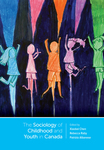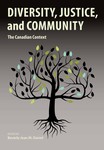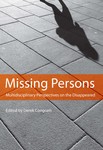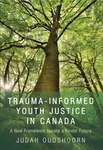We don’t actively support Internet Explorer
It appears that you are using Internet Explorer, which has been discontinued by Microsoft. Support has ended for versions older than 11, and as a result you may face security issues and other problems when using it.
We recommend upgrading to a newer browser such as Firefox, Google Chrome, or Edge for a much better experience across the web.
While this site may work with Explorer, we are not testing and verifying it, so you may run into some trouble or strange looking things.
Trauma-Informed Juvenile Justice in the United States
By Judah Oudshoorn
Overview
Although most young offenders have experienced some form of trauma, the juvenile justice system in the United States is ill-equipped to deal with the effects of trauma, and its focus on punishment often further traumatizes youth. This text presents a much-needed alternative to the current system, advocating trauma-informed interventions based on principles of healing and restorative justice.
Judah Oudshoorn addresses the context of youth offending by examining both individual trauma—including its emotional, cognitive, and behavioural effects—and collective trauma. The volume tackles some of the most challenging problems facing juvenile justice in the United States today, especially the ongoing cycles of intergenerational trauma caused by patriarchal violence and the over-incarceration of African American, Latino, and Native American youth.
The author deftly demonstrates how a trauma-informed approach to juvenile justice can work toward preventing crime and healing offenders, victims, and communities. Featuring a foreword written by Howard Zehr, case stories from the author’s own work with victims and offenders, questions for reflection, glossaries of key terms, and lists of recommended readings, this engaging text is the ideal resource for students in the field of juvenile justice.
Table of Contents
Acknowledgements
Foreword by Howard Zehr
Introduction
Juvenile Justice that Heals
Chapter 1
A Framework for Trauma-Informed Juvenile Justice
Chapter 2
Theory of Trauma-Informed Juvenile Justice—Why Do Young People Commit Crimes?
Chapter 3
Understanding Individual Trauma
Chapter 4
Collective Trauma, White Supremacy, and Male Violence
Chapter 5
Prison, Risk, and Punishment—A Trauma-Inducing Justice System
Chapter 6
Restorative Justice—The Worldview of Trauma-Informed Juvenile Justice
Chapter 7
Juvenile Justice as Trauma-Informed Care
Chapter 8
Trauma-Informed Prevention—Ending Cycles of Violence
Chapter 9
Victim-Centered Justice
Conclusion
Principles of Trauma-Informed Juvenile Justice
Notes
References
Copyright Acknowledgements
Index






